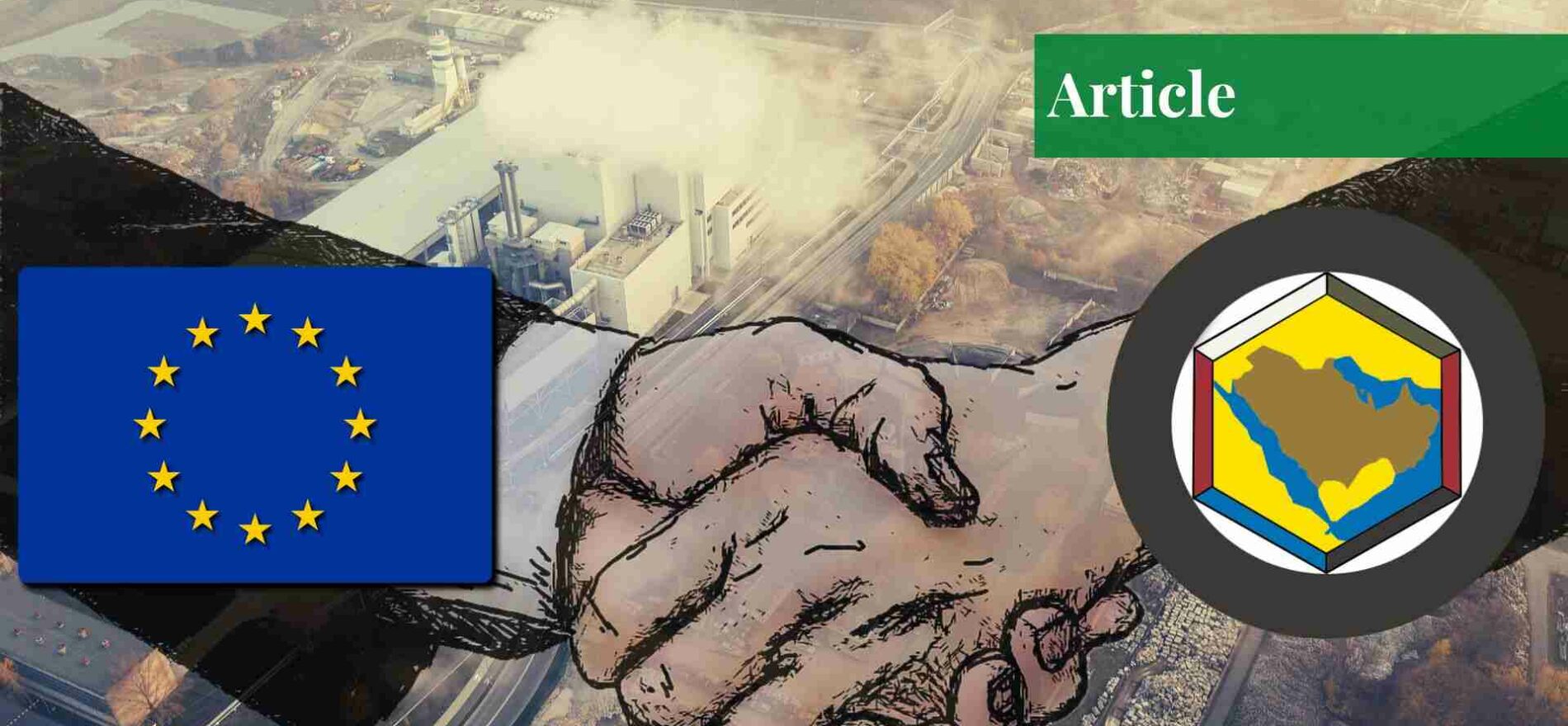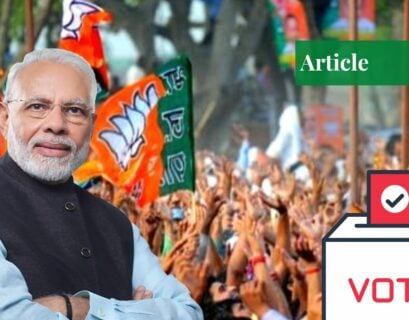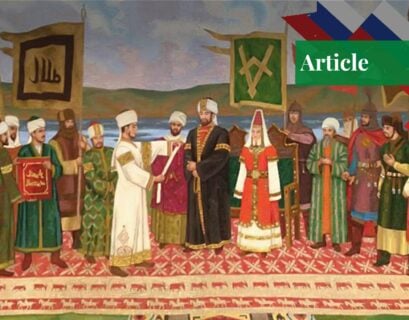Mr Suhaib Shaukat is currently studying International Relations at Middlesex University, London. He is also working with Shout Out, a UK-based organisation, on increasing political literacy among the youth.
Introduction
Energy has been a critical topic amongst policymakers and the public in the EU since Russia invaded Ukraine. Some towns have even started putting out notices of blackouts this winter period. There are also fears that Britain will be forced to sign expensive deals to avoid gas shortages. Over the summers, Russia has shown that it will respond with full power to Western sanctions.
Russia has been holding back energy supplies since last year, which made the wholesale price of gas 10 times higher. Several companies are reducing their production due to energy shortages, even before the winter kicks in. To overcome the crisis, the EU looks to the energy-rich GCC states.
Advancing Energy Ties
In the past, Europe’s policy on energy partnership with Gulf lagged due to the EU’s strict focus on renewables and climate change. Gulf states being heavily invested in fossil energy resources had been a major hurdle for EU-GCC cooperation, but the war in Ukraine has completely changed the situation on the ground.
Realising the situation, this year in May, the EU issued a policy paper titled “A Strategic Partnership with the Gulf”. The paper notes that there is a need for stronger partnerships with the region to implement the EU External Energy Strategy. To further the energy partnership, there have been multiple visits by both the EU and Gulf officials.
March was especially a busy period for advancing the energy ties. Germany’s Vice-Chancellor Robert Habeck visited Doha and Abu Dhabi to secure liquified natural gas for Germany. Qatar is going ahead with a massive expansion of its LNG network, and European governments believe that it will help them to mitigate the worst energy crisis in a generation.
Qatar’s expansion of its LNG will increase its capacity to 48 million tons per year, which will be about 20% more gas than Russia’s stalled Nord Stream pipeline. Another indication of greater engagement with Qatar is the inauguration of the EU office in Qatar at the start of September. EU Council President Charles Michel was present at the ceremony and after the ceremony, he met the Emir of Qatar and other top officials.
Saudi Arabia also has the potential to aid Europe in overcoming the energy crisis. The German chancellor’s visit to Saudi in September is proof that Germans are out for energy shopping. The dynamics of the partnership are evident through the words of the German government, that a “solid working relationship” is needed with Saudi Arabia.
In October 2021, Saudi’s energy minister launched the ceremony for the country to become the world’s largest hydrogen producer. Germany believes that the future of the cooperation can be expanded to import renewable energy from Gulf states, particularly Saudi Arabia.
EU-GCC Challenges
There are multiple challenges that both the EU and GCC states must overcome for the energy partnership to be a successful one. The Russia-Ukraine war demonstrates that energy deals are not just commercial transactions but that they also give the seller and buyer a stake in each other’s national security.
The GCC’s position on the Russia-Ukraine war has been very carefully crafted. The monarchs have not condemned Russia openly and have preferred the role of negotiator, as recently shown by Saudi-sponsored talks to release Ukraine prisoners. The recent OPEC+ cuts in their production quantities will indirectly help Russia and help them to finance the ongoing war. OPEC+ has denied the allegation and has reaffirmed that its decision was purely based on economics and not politics.
Commercial & Infrastructural Challenges
Often long-term gas supply contracts run from 10 to 25 years. Qatar right now is fully utilizing its capacity; it is estimated that Qatar has 90%-95% long-term contracts and 5%-10 short-term contracts. Most of the long-term contracts are signed with Asian nations such as China and Japan.
To divert its supplies from Asia to Europe, Qatar would have to be involved in tough negotiations with Asian nations. Experts predict that even if the Asian nations agree to have a reduced supply of LNG, they will require Qatar to compensate. In terms of business, Asia is a much more suitable market for Qatar to sell its LNG. This is because Asia’s dependence on LNG will only increase in decades, unlike Europe which consumes only one-third of the exports.
The technical aspect of transporting LNG must not be ignored as well. For instance, up until now, gas has arrived in Germany via pipelines, so to import LNG, it is essential to build new infrastructure. The infrastructure would include setting up new terminals to convert the LNG from its liquid form to gas and then also building pipelines that will connect the new network to the existing national grid.
Political Challenges
There will be political implications for the EU-GCC energy cooperation as well. The 5th October decision of Saudi prompted OPEC+ to cut down production by 2 million barrels per day. Experts say that the decision reflects that the monarchies are effectively siding with Kremlin and helping it to overcome the economic sanctions imposed on it by the Western powers.
This makes cooperation with the GCC states a bit more complicated. It is yet to be seen how the European countries will take forward the energy cooperation deals alongside the political realities on the ground. Up until now, Europe has mostly counted on the US to lead. The Europeans are often seen to be dependent on America’s policy in the region, which makes the Gulf states skeptical about the Europeans.
There have been efforts, however, by Europe to create its own space in the security sphere of the GCC. In early 2020, Germany and several other EU countries supported European Maritime Awareness in the Strait of Hormuz (EMASOH). The chief mission was to play a role in ensuring the security of the region, but the initiative has remained mainly dormant and has made little progress.
Conclusion
Building relationships with GCC states will involve balancing interests and values. It will require effectively engaging with the Gulf region with a comprehensive strategy and action plan. There is a need to form people-to-people relationships that will pave for formal cooperation among the countries. Energy cooperation can be the beginning of a more extensive partnership in education, culture, and business.
If you want to submit your articles and/or research papers, please check the Submissions page.
The views and opinions expressed in this article/paper are the author’s own and do not necessarily reflect the editorial position of Paradigm Shift.



















